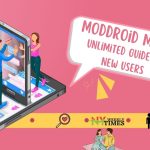Flashcards are one of the most effective tools for mastering any subject. Whether you’re studying for an exam, learning a new language, or trying to memorize complex concepts, flashcards help break down information into manageable pieces. By using active recall and spaced repetition, you can improve retention and speed up the learning process. This article will show how flashcards can help you master subjects easily and provide tips on maximizing their efficiency.
Why Flashcards Are a Powerful Learning Tool
Active Recall: Strengthening Your Memory
One of the biggest advantages of flashcards is that they promote active recall. Active recall is the process of retrieving information from memory without relying on prompts, which strengthens your ability to remember that information in the future. Flashcards challenge your brain to work harder than passive study methods, such as reading or highlighting, leading to better long-term retention.
Every time you review a flashcard and retrieve the answer from memory, you’re reinforcing the neural connections that store that information. Over time, this process makes it easier to recall the material during exams or real-life applications.
Spaced Repetition: Maximizing Retention Over Time
Spaced repetition is another critical component of effective flashcard use. This technique involves reviewing material at increasing intervals, just before you’re likely to forget it. Spaced repetition helps move information from short-term memory into long-term memory, making it much more effective than cramming before an exam.
By combining flashcards with spaced repetition, you ensure that you’re reviewing the material at the optimal time to boost retention. Digital tools like Anki automate this process by adjusting the review schedule for each flashcard based on how well you know the material.
How Flashcards Help You Master Subjects Quickly
1. Breaking Down Complex Information
Flashcards simplify complex subjects by breaking them into smaller, digestible pieces. Whether you’re learning new vocabulary, scientific terms, or historical facts, flashcards allow you to focus on one concept at a time. This method helps prevent information overload and ensures that you fully understand each topic before moving on to the next.
2. Promoting Active Engagement
Flashcards require active participation, which keeps you more engaged in the learning process. Instead of passively reading or listening to information, flashcards force you to interact with the material. This active engagement improves retention and keeps your study sessions focused and productive.
3. Versatility for Any Subject
Flashcards are incredibly versatile and can be used for any subject, from math and science to language learning and history. They are especially helpful for subjects that require memorization, such as anatomy, foreign languages, or chemistry. Whether you’re studying for a test or simply want to improve your knowledge, flashcards can be customized to meet your learning needs.
Using Digital Flashcards for Enhanced Learning
Why Digital Flashcards Are More Efficient
While traditional flashcards are effective, digital flashcards offer additional benefits that enhance the learning process. Tools like Anki allow you to create, organize, and track your progress effortlessly. The Anki flashcards app also incorporates spaced repetition algorithms that automate the review process, ensuring that you’re studying the right material at the right time.
Image Occlusion for Visual Learning
For subjects that involve visual information, such as anatomy or geography, digital flashcards can include diagrams and images. An advanced feature like image occlusion Anki lets you hide parts of an image and quiz yourself on the hidden information. This technique is especially useful for subjects that rely heavily on visual details, as it allows you to test your knowledge in a more interactive and engaging way.
Image occlusion is particularly helpful when studying complex diagrams, such as anatomical structures or maps, as it allows you to focus on specific details and test your ability to recall them without visual prompts.
Tips for Maximizing the Effectiveness of Flashcards
1. Focus on One Concept Per Card
Each flashcard should focus on a single question or concept. Cramming too much information onto one card can make it difficult to recall and reduce the effectiveness of active recall. By keeping each card simple, you can process the information more efficiently and ensure that you fully understand each topic.
2. Use Both Sides of the Card
The traditional format of a flashcard involves writing a question, term, or concept on one side and the answer or explanation on the other. This structure encourages active recall by prompting you to retrieve the answer before flipping the card to check if you’re correct. This method reinforces your memory and helps you retain the material more effectively.
3. Review Regularly with Spaced Repetition
Incorporate spaced repetition into your flashcard routine to optimize retention. Review the cards at intervals that increase over time, focusing more on the material you struggle with. Digital tools like Anki can automate this process, scheduling reviews based on your performance and ensuring that you focus on the areas that need the most attention.
4. Shuffle the Deck
To avoid memorizing the order of the flashcards rather than the content, regularly shuffle your deck. This forces your brain to recall the information in different contexts, strengthening your ability to retrieve it during tests or practical situations.
Common Mistakes to Avoid with Flashcards
1. Overloading Cards with Information
One of the most common mistakes is trying to put too much information on a single flashcard. Instead, break the information down into smaller, more manageable pieces. This keeps your study sessions focused and ensures that you’re not overwhelming your brain with too much material at once.
2. Not Reviewing Regularly
Flashcards are most effective when reviewed consistently. Make it a habit to go through your flashcards daily or several times a week, depending on your schedule. Regular review sessions help reinforce the material and prevent forgetting.
Conclusion: Master Subjects Easily with Flashcards
Flashcards are an invaluable tool for mastering any subject, offering a simple yet powerful way to retain information and boost learning speed. By leveraging active recall, spaced repetition, and digital tools like image occlusion Anki, you can enhance your study sessions and improve your ability to recall complex concepts. Whether you’re preparing for exams or simply looking to expand your knowledge, flashcards provide an efficient and effective way to learn. Incorporate flashcards into your study routine and start mastering subjects with ease.
Also read more: A Comprehensive Guide to Commercial Moving Services.










